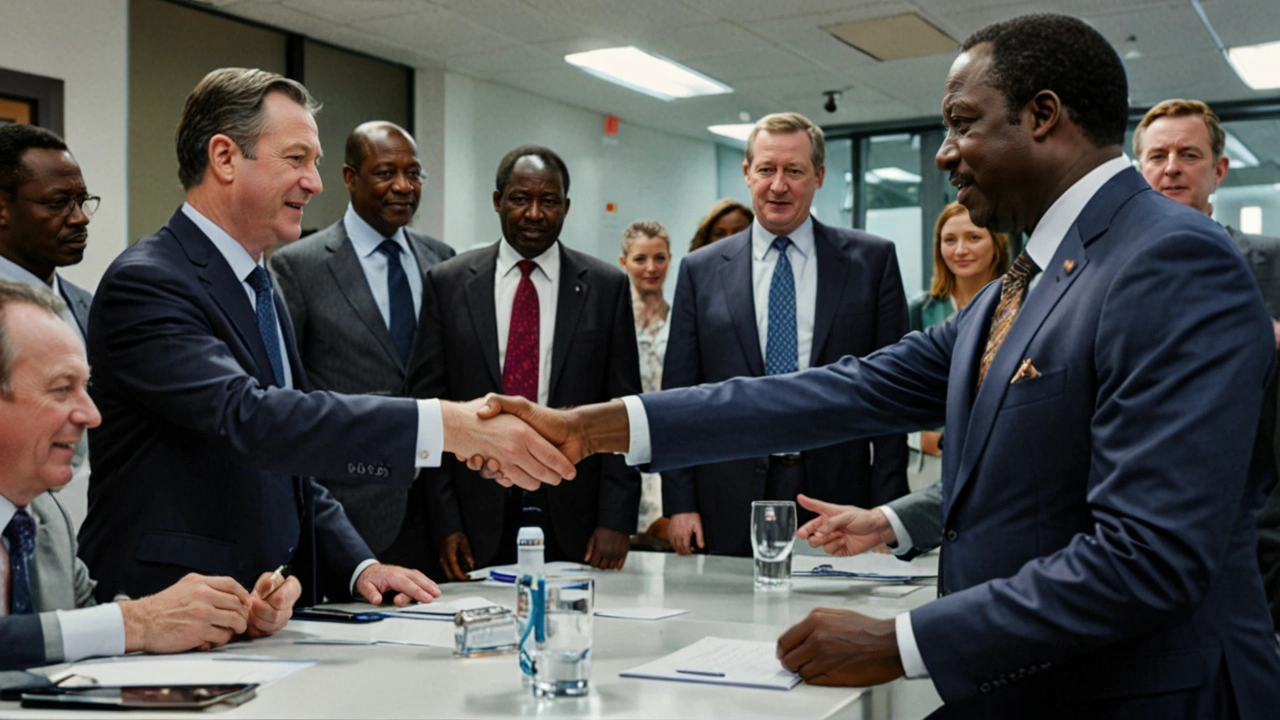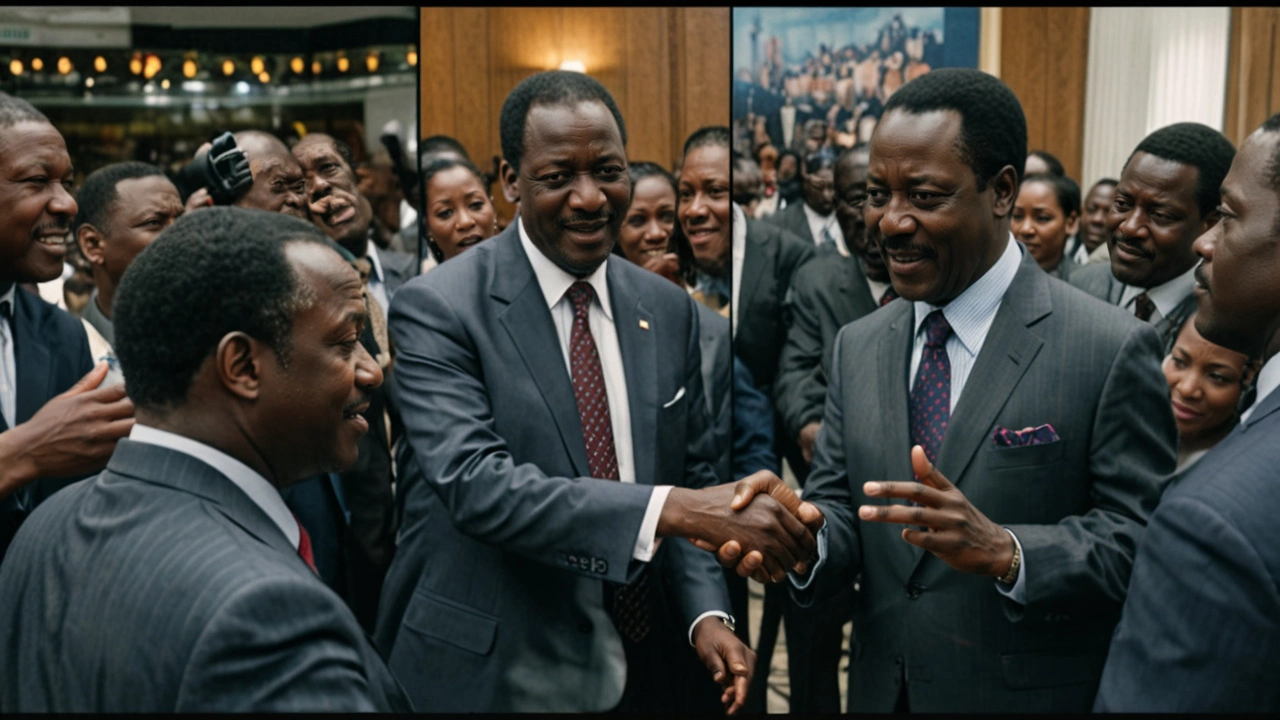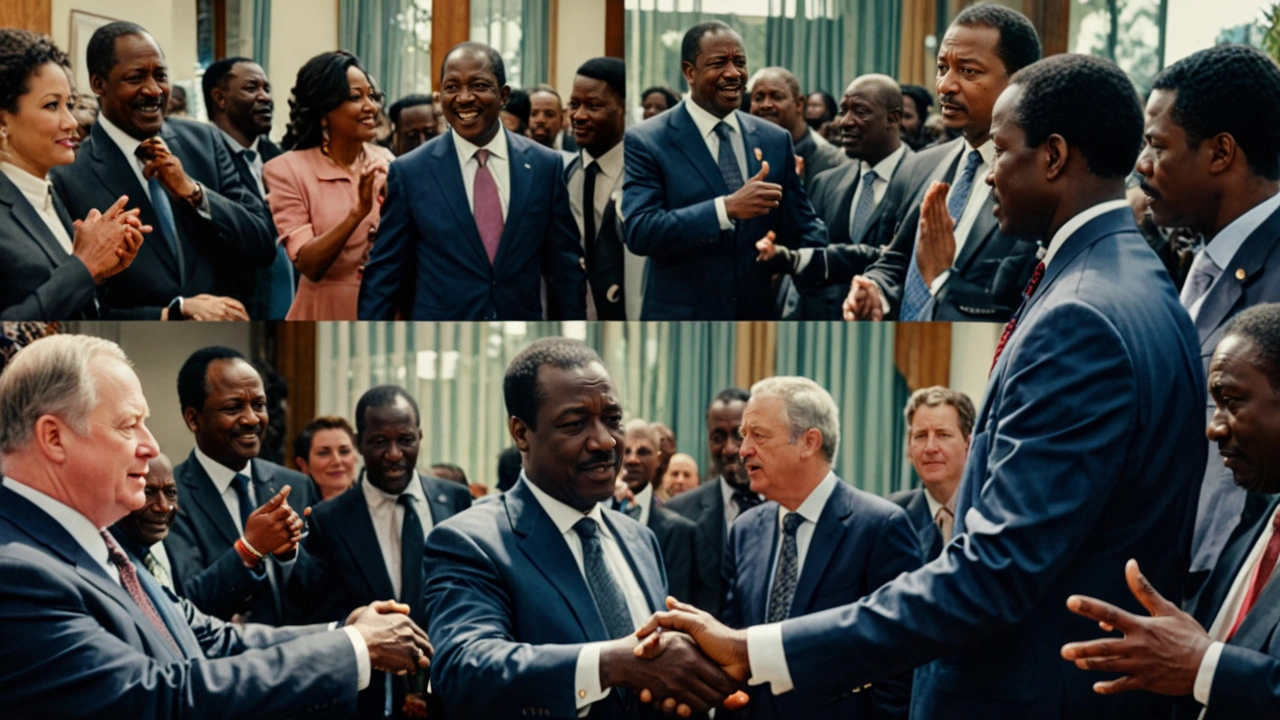Introduction
Raila Odinga, a name synonymous with Kenyan politics, has been a dominant force for over five decades. Now at the age of 79, this veteran politician is facing what may be the most significant challenge of his career—public perception that he has strayed from his liberation roots towards self-serving political maneuvers. With a career marked by both groundbreaking achievements and controversial deals, the question arises: Is Raila Odinga's time in politics nearing its end?
Early Political Career and Achievements
From the early stages of his political journey, Odinga positioned himself as a champion of Kenyan democracy. Known for his unwavering fight against oppressive regimes, he made significant contributions to the country's political landscape. His role in the second liberation movement saw the end of single-party rule and the ushering in of a multiparty democracy in the early 1990s. For many Kenyans, Odinga was more than just a politician; he was a symbol of hope and resilience.
Controversial Deals and Political Maneuvers
However, Odinga’s career has not been without its share of contentious decisions. In 1998, Odinga struck a deal with then-President Daniel arap Moi, leading to the merger of his National Development Party (NDP) with Moi's Kenya African National Union (KANU). This move shocked many of his supporters, who felt it compromised his stance on democratic reforms. Fast forward to 2008, and Odinga found himself yet again in the midst of political negotiations, this time emerging as the Prime Minister under the Grand Coalition Government brokered by Koffi Annan to resolve the post-election violence that had gripped the nation.

The Handshake and Recent Political Alignments
In 2018, Odinga made another strategic move by entering into a 'handshake' agreement with President Uhuru Kenyatta. Aimed at fostering national unity, this deal garnered mixed reactions. While some hailed it as a step toward reconciliation, others saw it as a betrayal of the opposition's principles. The pattern continued with arrangements involving William Ruto in 2023 and 2024. Critics argue that these alliances primarily serve Odinga’s political and economic interests, overshadowing the broader goals of national liberation and progress.
Engagement with Gen Z and National Dialogue
In recent years, Odinga’s involvement in national dialogues with Kenya’s younger generation, often referred to as Gen Z, has raised eyebrows. While engagement with the youth is crucial for the future of any nation, the manner in which Odinga has conducted these dialogues has led some to question his motives. Is he genuinely committed to addressing the concerns of the younger generation, or is this yet another chapter in his long history of self-serving deals?
The Legacy Question
Despite his numerous contributions to Kenyan politics, Odinga's legacy is under intense scrutiny. Many argue that his recent actions reflect a shift from his original vision of comprehensive political and economic liberation for Kenya. Instead, there is a growing sentiment that Odinga’s focus has increasingly been on personal gain. This has led to a broader debate: Has Odinga, once a revered liberation stalwart, become a political figure more concerned with self-preservation?

Public Reaction and Political Future
The public reaction to these developments has been mixed. While some continue to support Odinga, acknowledging his past sacrifices and contributions, others feel it may be time for new leadership. The emergence of young and dynamic leaders, coupled with Odinga’s controversial political moves, has fueled speculation about his future in Kenyan politics. Can he adapt to the changing political climate, or is it time for him to step aside and allow a new generation of leaders to take the helm?
Conclusion
The political journey of Raila Odinga is a complex narrative filled with triumphs and trials. As he navigates the twilight years of his career, the questions surrounding his legacy are more pertinent than ever. Whether Odinga’s time is truly up remains to be seen, but what is clear is that his impact on Kenyan politics will be remembered for generations. Moving forward, only time will tell if he can reclaim his status as a liberation hero or if his recent actions will overshadow his previous achievements.

Seyi Aina
July 10, 2024 AT 05:10Raila's handshake was just a power grab, no heroics.
Alyson Gray
July 16, 2024 AT 00:04Honestly, seeing Raila try to vibe with Gen Z feels like watching a vintage TV trying to stream Netflix.
He’s got the name, the history, but the energy? Kinda off.
Fans still hold onto the hope that he can pivot, but the moves lately just scream “I’m stuck in the past”.
It’s a sad mix of nostalgia and disappointment.
Shaun Collins
July 21, 2024 AT 18:57Raila keeps doing his own thing. No surprise there. Politics is a game he’s mastered.
Chris Ward
July 27, 2024 AT 13:50People love to call him a legend but maybe he’s just a politician who knows how to stay visible.
Honestly, the handshake thing was just a PR stunt, nothing more.
It’s easy to get caught up in the drama when the facts are plain.
Heather Stoelting
August 2, 2024 AT 08:44Come on, we can still cheer for someone who gave Kenya a voice! Let’s keep the vibes positive.
Travis Cossairt
August 8, 2024 AT 03:37Raila’s legacy is a mixed bag. He’s done both good and questionable things.
Amanda Friar
August 13, 2024 AT 22:30Oh sure, let’s applaud the ‘handshake’ as if it solved everything.
Meanwhile, the real issues keep stacking up.
Nice try, Raila, but the drama ain’t over.
Sivaprasad Rajana
August 19, 2024 AT 17:24Raila helped bring multi‑party politics to Kenya.
He also made deals that many found unsettling.
Both sides of his record matter.
Andrew Wilchak
August 25, 2024 AT 12:17Listen, the guy’s been around forever, but his recent moves feel like he’s trying too hard to stay relevant.
Roland Baber
August 31, 2024 AT 07:10When we examine Raila’s journey, we see a tapestry of struggle, compromise, and ambition.
He helped shape the nation’s democratic foundations, yet he also navigated the murky waters of political bargaining.
Understanding this duality is essential for any fair assessment.
History will judge him on the balance of these forces.
Phil Wilson
September 6, 2024 AT 02:04From a strategic viewpoint, the handshake was a tactical pivot rather than pure altruism.
It allowed coalition building, albeit with trade‑offs.
Roy Shackelford
September 11, 2024 AT 20:57Patriots see this as betrayal, but nationalists know it’s just another power shuffle.
Stay alert.
Karthik Nadig
September 17, 2024 AT 15:50Drama continues! 😂 Raila’s “gen Z” talks feel like a trying‑to‑be‑hip dad joke.
Someone hand him a TikTok tutorial.
Charlotte Hewitt
September 23, 2024 AT 10:44What if the handshake was orchestrated by hidden forces? Just saying.
Be cautious about the narrative.
Jane Vasquez
September 29, 2024 AT 05:37Wow, the legend finally decides to sell out… 🙄
Guess we’ve hit the “I’m-just‑a‑political‑actor” chapter.
Hartwell Moshier
October 5, 2024 AT 00:30He’s still got influence, even if his moves seem odd.
Time will tell if it’s worth it.
Jay Bould
October 10, 2024 AT 19:24From a cultural lens, his attempts to speak to youth show a willingness to adapt.
That’s a positive sign.
Mike Malone
October 16, 2024 AT 14:17While one may observe that the handshake represents an attempt at political stability, the underlying motivations remain subject to scrutiny. The intricacies of coalition politics in Kenya demand a thorough analysis of compromise versus principle, and such an analysis must consider historical precedent. Moreover, the interplay between personal ambition and national interest cannot be dismissed lightly. In sum, a nuanced perspective is essential for any informed discourse.
Pierce Smith
October 22, 2024 AT 09:10Formally speaking, the political calculus behind Raila’s recent alliances appears calculated.
Informally, it just looks like old politics playing out.
Abhishek Singh
October 28, 2024 AT 03:04Raila Odinga’s name is stamped on Kenya’s modern political map, and his decades‑long battle for multiparty democracy cannot be ignored. Yet, the obsession with his recent handshake and partnership pacts reveals a deeper anxiety about the nation’s direction. Many younger Kenyans ask whether a figure from the liberation era can truly represent their aspirations. The answer, however, lies not in nostalgia but in concrete policies that address unemployment, education, and corruption. Raila’s legacy, built on sacrifice, is now being weighed against a series of pragmatic yet controversial deals. Some argue that his willingness to compromise is a sign of political maturity, a necessary step toward stable governance. Others view these gestures as betrayals of the very ideals that once propelled him to prominence. In evaluating his impact, one must recognize both the historic breakthroughs he championed and the questionable alliances he forged. The handshake with President Kenyatta, for instance, was marketed as a unifying act, yet it alienated segments of his original support base. This pattern repeated in subsequent engagements with William Ruto, raising doubts about his strategic consistency. Moreover, the manner in which Raila has addressed the concerns of Gen Z often feels performative rather than substantive. While establishing dialogue with youth is commendable, the depth of those conversations remains questionable. It is essential for any leader, veteran or newcomer, to evolve beyond rhetoric and deliver tangible outcomes. The Kenyan electorate deserves clarity on whether Raila’s vision aligns with the nation’s present challenges. If his focus shifts toward preserving personal power, the revolutionary spirit that once defined him risks fading into mere nostalgia. Nonetheless, dismissing his contributions outright would be an oversimplification. His role in dismantling single‑party rule laid the groundwork for democratic pluralism. The question now is whether that foundation can support a transition to new leadership without eroding the gains of the past. Kenya stands at a crossroads where the old guard must decide whether to step aside gracefully or cling to relevance. In that moment of decision, the country’s future will be shaped by the balance between reverence for legacy and the urgency for renewal.